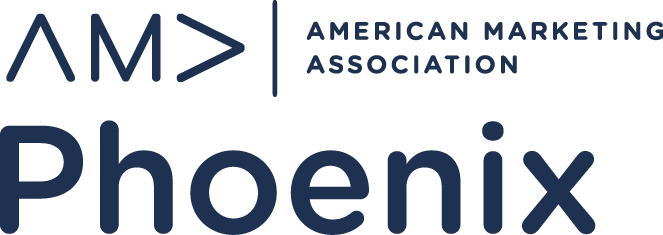- August 24, 2023
- Posted by: Featured
- Category: Expert Roundups

13 Cost-Effective Strategies for Marketing Research on a Budget
Small businesses often grapple with finding cost-effective market research strategies. To help them, we’ve gathered thirteen insightful strategies from professionals, including market research data analysts and CEOs. From leveraging online surveys for research to tapping into your existing customer base, these experts share their best tips for making informed marketing decisions.
- Leverage Online Surveys and Analyze Trends
- Utilize SBDC for Research Assistance
- Use the Power of Social Media and Reviews
- Monitor Social Platforms and Newsletters
- Incentivize Survey Participation
- Define the Target Market and Leverage Tools
- Track User Behavior With Google Analytics
- Collect Feedback via Post-Purchase Surveys
- Transform Raw Data With an AI Plugin
- Conduct Guerrilla Research in Real-World Settings
- Implement a Marketing Attribution Strategy
- Conduct Short Surveys on LinkedIn
- Tap into Your Existing Customer Base
Leverage Online Surveys and Analyze Trends
One cost-effective market research strategy for small businesses is conducting online surveys. This involves defining research objectives, selecting a suitable survey platform, like Google Forms, or creating a well-structured survey aligned with the research goal.
The business can target its audience using email lists, social media channels, or its website to gather responses from interested parties. Offering incentives, such as discounts or exclusive content, can boost participation rates.
After collecting enough responses, the data should be analyzed for trends and insights to inform marketing decisions. Keep in mind that online surveys have limitations and may not fully represent the entire target market, so using them alongside other research methods is recommended.
Respecting respondents’ privacy and complying with data protection regulations is essential to maintain ethical practices.
Patrick Gitonga
Market Research Data Analyst
Utilize SBDC for Research Assistance
Small businesses can leverage the expertise of the Small Business Development Center (SBDC) for no-cost market research assistance. The SBDC is in every U.S. state and territory and offers access to business experts, including marketing specialists. SBDC experts often have access to resources like university libraries and paid databases that can provide valuable market insights and interpretation of the data.
For example, MI SBDC consultants have access to industry-specific research at their desks. The Michigan SBDC also has a dedicated market research team to dive deep into traffic counts, local demographics, and potential customer lists. This includes social media and website SEO audits for clients at no cost.
 Karlie Robinson
Karlie Robinson
Business Consultant and SBDC, Michigan Small Business Development Center
Use the Power of Social Media and Reviews
In my role as a Virtual Assistant, I’ve discovered that one highly cost-effective market research strategy for the small businesses I support involves using the power of social media platforms.
By analyzing the behaviors, interests, and demographics of their followers, businesses can gain invaluable insights into their target audience, which serve as a guide for their marketing decisions, content creation, and direct engagement with their customers.
Besides this approach, another effective method is to monitor online reviews and customer feedback on platforms like Google or Trustpilot. This helps to identify both strengths and weaknesses, enabling businesses to capitalize on their advantages and address ways to improve.
By utilizing these strategies, small businesses can make informed marketing decisions without incurring substantial costs.
Heike Wilkinson
Virtual Assistant, Pink Spaghetti PA Services
Monitor Social Platforms and Newsletters
The best insights stem from consumers and culture. These insights can be sought where your product or category is being discussed, such as on Reddit, TikTok, Twitter, Instagram, and other social media platforms.
Monitoring trend-setters who often define popular culture to keep a finger on the cultural pulse is beneficial. To streamline this process, subscribing to relevant email newsletters that provide updates in a snackable form, following trendsetters on social media, and using social listening tools to track mentions of keywords associated with a brand, product, or category is recommended.
Assigning a dedicated team member to track these sources regularly and find intersections with your brand is an excellent strategy. This approach is not only cost-effective, but it also offers real-time insights to drive informed marketing decisions.
 Mariia Vasylenko
Mariia Vasylenko
Brand Strategist, Connelly Partners
Incentivize Survey Participation
The incentive to fill out a survey is the most critical bit, or equally important, to creating well-balanced questions. For a previous employer, I devised a five-minute survey for existing customers in order to build an entirely new content strategy for the company.
The online survey had an 80% response rate because we offered lottery tickets to three random participants. One of them ended up winning 400 GBP with his ticket and was absolutely delighted. On top of the great insights we got from the research, this was a cool story to share on social media.
 Hristina Stefanova
Hristina Stefanova
Senior Marketing Manager, Blue Tea Ltd
Define the Target Market and Leverage Tools
An imperative initial step is to define the target market or audience precisely, which allows for judicious allocation of financial and other resources. Understanding the demographics and preferences of the audience being addressed holds significant importance.
Leveraging existing clients, past clients, and acquaintances who align with the target audience proves helpful; implementing surveys and forms can yield valuable insights. Conducting independent market research is paramount.
By addressing the audience’s desires and preferences, even those aligned with unfamiliar trends, businesses can gain a competitive edge and foster success through informed, inspired, and innovative approaches.
 Marissa Buckle
Marissa Buckle
Social Media Manager
Track User Behavior With Google Analytics
Using Google Analytics, or a similar web analytics tool, to track website traffic, user behavior, and demographics is a cost-effective market research strategy for small businesses.
Data from an analytics tool can provide insights into which marketing channels are most effective, which content performs best, and which audience segments are the most engaged.
This data also helps businesses gauge the overall performance and user experience of their website.
Google Analytics setup is part of GPD Creative Agency’s Website Build/Revamp package. Incorporating Google Analytics setup from the beginning of a website build or revamp ensures that your business is collecting data right away and can benefit from a wealth of information as your website grows.
 Jessica Shely
Jessica Shely
Genius in Charge, GPD Creative Agency
Collect Feedback via Post-Purchase Surveys
If you are working in the digital space, one inexpensive way to collect market research is to put a quick survey on the post-purchase screen. This has been very effective in my experience, as you are asking your customer directly in their conversion process what they think of the process/product, and asking them how you can do better. This is invaluable in creating a better UX strategy for your future customers.
 Taleisha Barker
Taleisha Barker
Marketing and Communications Manager, Flowers Across Melbourne
Transform Raw Data With an AI Plugin
With cost-effective market research strategies for small businesses, using data they already possess can be incredibly valuable. The key lies in transforming this raw data into actionable insights, and this is where OpenAI’s ChatGPT-4 code interpreter plugin shines.
Unfortunately, existing data is often unstructured and challenging to parse. With the plugin, businesses can quickly analyze the frequency and timing of purchases, presenting this information in an easy-to-read line graph.
This provides insights into customer buying habits, allowing the business to time marketing campaigns or sales to coincide with periods of high buying activity. The plugin can also conduct a thorough analysis of product preferences by identifying uniquely popular or trending items, giving valuable insights into the development of new products, the marketing of existing ones, or how products should be featured on the website.
 Michelle Burson
Michelle Burson
President and Co-Founder, MarComm
Conduct Guerrilla Research in Real-World Settings
One cost-effective and unique market research strategy for small businesses is guerrilla research. This approach involves directly engaging with the target audience in real-world settings, bypassing the need for formal surveys or expensive research agencies.
Small-business owners can conduct on-the-spot interviews, quick questionnaires, or observe customer behaviors and reactions at public places or events to gather authentic and unfiltered insights. Guerrilla research enables businesses to understand customer needs and preferences quickly, leading to more agile and customer-focused marketing decisions.
By embracing this unconventional method, small businesses can stay closely connected to their audience, adapt swiftly to their changing demands, and gain a competitive edge in the market. It’s a cost-effective way to gather valuable data and make informed decisions that resonate with their customer base.

CRO and Founder, Stratosphere
Implement a Marketing Attribution Strategy
A cost-effective market research strategy that small businesses can use is asking customers, “Where did you hear about us?” This form of marketing attribution is inexpensive and informative. Each customer response gives insight into which marketing channels are most effective.
This data can be analyzed to allocate the marketing budget more effectively. Businesses can invest more in channels that bring in customers and decrease spending on less successful ones. This strategy also has the added benefit of making customers feel valued, fostering satisfaction and loyalty, which can lead to word-of-mouth marketing.
 Steve Dinelli
Steve Dinelli
Founder, Marketer Interview
Conduct Short Surveys on LinkedIn
LinkedIn is an excellent tool for a market research strategy that small businesses can utilize. When making marketing decisions, especially involving decision-makers, including CEOs and C-suite, a short 3-5 question survey posted and shared on LinkedIn goes a long way.
 Amore Philip
Amore Philip
Director of Public Relations, Apples & Oranges Public Relations
Tap into Your Existing Customer Base
One cost-effective market research strategy that small businesses can utilize to inform their marketing decisions is to tap into their existing customer base.
Small focus groups and surveys of your loyal customers can be highly effective and budget-friendly. These valuable insights come directly from those who are already engaged with your products or services, providing invaluable feedback on what works, what doesn’t, and what improvements can be made.
By listening to your customers, you gain actionable data that can drive informed marketing decisions and help your small business thrive without wasting precious resources on expensive research methods.
 Matias Rodsevich
Matias Rodsevich
CEO, PRLab
Submit Your Answer
Would you like to submit an alternate answer to the question, “What is one cost-effective market research strategy that small businesses can utilize to inform their marketing decisions?”
